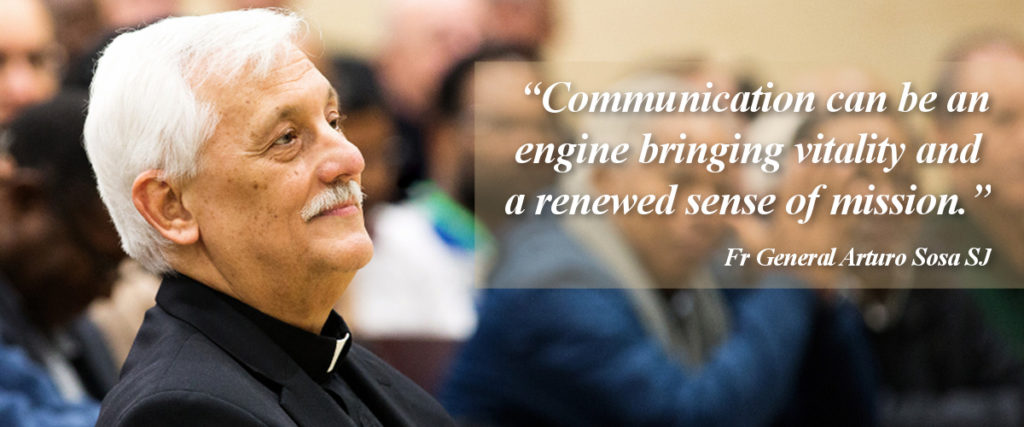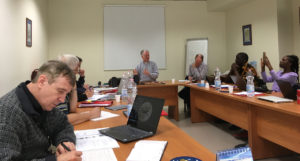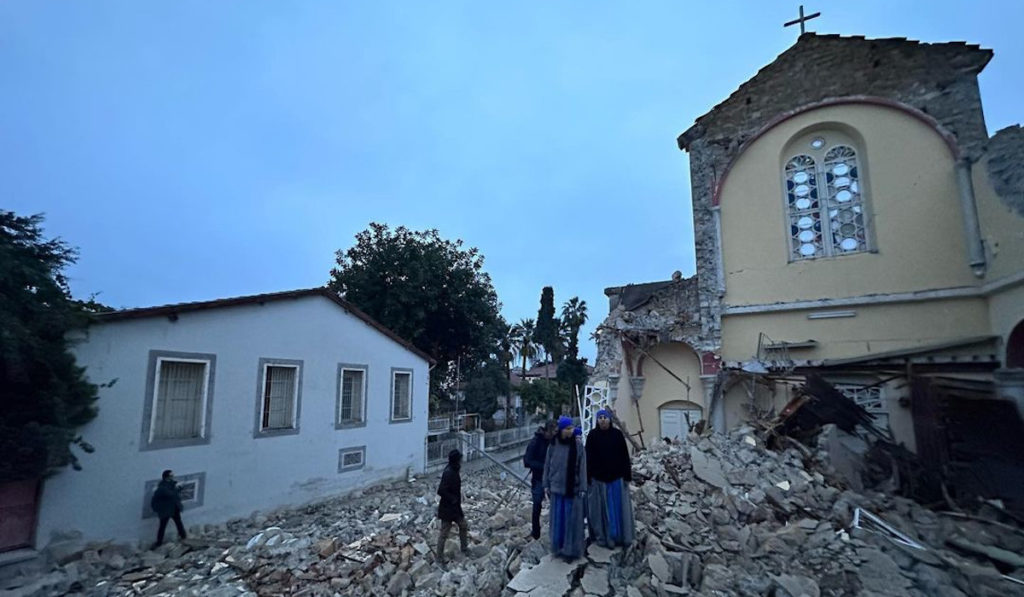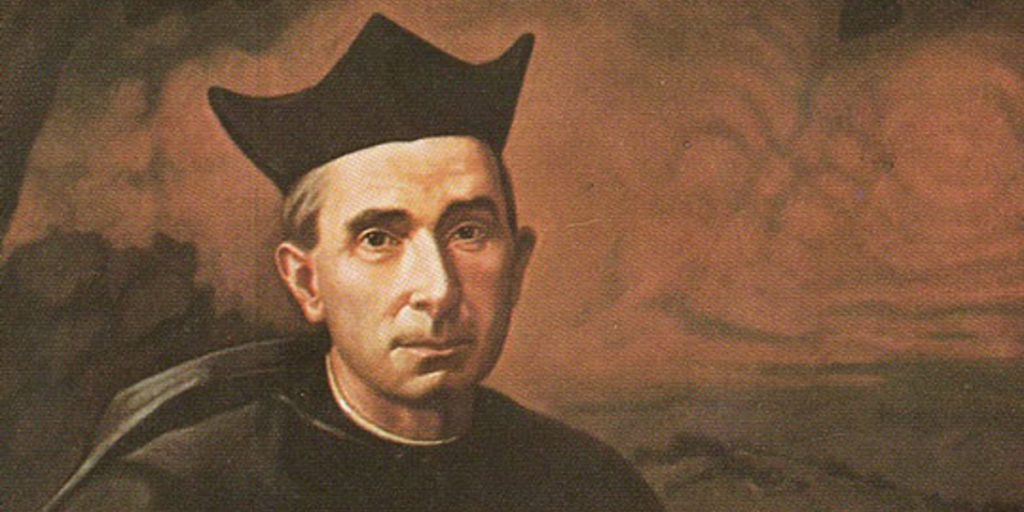A devastating 7.8-magnitude earthquake struck Syria and Turkey early morning on Monday, 6 February, killing more than 7,000 people and leaving behind a trail of destruction and debris. Continue reading “Jesuit emergency response to the Turkey-Syria earthquake”
Jesuit emergency response to the Turkey-Syria earthquake
Spanish Jesuit Fr Tiburcio Arnaiz to be beatified

In his letter addressed to the whole Society of Jesus on October 11, Father General Arturo Sosa announced the beatification of Spanish Jesuit Fr Tiburcio Arnaiz Muñoz on October 20 in Málaga, Spain.
Fr Sosa described Fr Arnaiz as “a worthy proponent of popular missions and promotor of the participation of the laity in spreading the faith” and an example to be followed.
“In our own time, we can learn much from what Fr Arnaiz did in his day, giving full meaning to the work of Jesuits designated as ‘operarius’, a title many Jesuits continue to bear with pride today,” wrote Fr General Sosa.
“In ways adapted to our present contexts, many of the rich qualities of Fr Arnaiz can be put into practice: his promptness to detect and respond to structural problems; his energetic determination to undertake new works and persevere in them; his ability to attract and bring together people of diverse social origins for the sake of helping the poor; his admirable strength in confronting setbacks; his courageous evangelising efforts even in difficult times and circumstances; his utter confidence in Providence; his firm personal love for Jesus Christ; and his generous and affable friendship with all types of people.”
In ways adapted to our present contexts, many of the rich qualities of Fr Arnaiz can be put into practice. ~ Father General Arturo Sosa
The new Blessed was born on August 11, 1865 in Valladolid, Spain. At the age of 13, he entered the Minor Seminary and at 25 was ordained a priest. After the death of his mother in 1902, he fulfilled his desire of becoming a Jesuit by entering the novitiate in Granada. Trusting only in God, he declared with unshakeable conviction: “I will no longer die to anyone because I am going to die to all that is not God”.
After pronouncing his vows, he remained in Granada studying humanities, philosophy and theology. He also began to guide people in the Spiritual Exercises and train for the popular missions. In 1909, he traveled to Murcia, where he collaborated for two years in various pastoral activities. He made his tertianship in Loyola in 1911 and pronounced his final vows in 1912 in Málaga, the city where he would remain until his death on July 18, 1926.
Like his contemporaries, Saint José María Rubio and Venerable Francisco de Paula Tarín, Fr Arnaiz was an indefatigable evangeliser of a good part of Spain, using various apostolic instruments, especially the popular missions. His apostolate was focussed on Andalusia. In the province of Málaga’s rural and urban areas, he always left a strong impression.
In the outlying districts of Málaga, in the so-called “corralones” (yards), in which neighbours lived around a common patio, he effectively organised a system of cultural advancement and catechesis for struggling residents. From the start, he was generously helped in this initiative by teachers and other young women from the capital of Málaga.
In 1921, he got to know one of these young women, María Isabel González del Valle Sarandeses (1889-1937), who had set her mind on working as a missionary in some far-off land. Fr Arnaiz suggested that she remain in the south of Spain, and a year later, founded with her an association of consecrated laywomen dedicated to evangelising poor rural regions: the Obra de las Misioneras de las Doctrinas Rurales. They continue to be living witnesses today, through the practice of what they call “doctrinas”, during which they remain present in needy villages, where they offer cultural training and knowledge of the Christian faith, always accompanied by collaborators and volunteers.
Working from the residence of the Society in Málaga, Fr Arnaiz was constantly giving the Exercises, offering spiritual direction, assisting in the Diocesan Seminary, and promoting the Marian Congregations, the Apostleship of Prayer, the “Adoración Nocturna”, and the Conferences of Saint Vincent de Paul.
I have rushed all my life; I have worked as much as I could; now the Lord will raise me up. ~ Fr Tiburcio Arnaiz SJ
Following the impulses of his heart, he frequently visited prisoners and the sick. He helped street children, heard confessions in the Jesuit church and set out to give popular missions. Convinced of the urgent need for good education, he promoted the opening of schools, the founding of a Catholic library, a system for distributing medicines, and the construction of houses of hospitality for people in need. His incessant activity led him to say at the end of his life: “I have rushed all my life; I have worked as much as I could; now the Lord will raise me up.”
At his death, all of Málaga turned out for the funeral of the man whom they later recognised as “apostle of the city.” Fr Arnaiz had already acquired a reputation for holiness during his life, but he continues to attract the faithful of every social condition, who constantly visit his tomb in the church of the Sacred Heart in the centre of the city. It was with good reason that the then-bishop of Málaga and now saint, Manuel González, complained while praying at his funeral: “What are you doing, my Jesus? … How do you expect me to carry the burden you have placed on my weak shoulders if you have taken from me the best workers in this vineyard?” He then encouraged the Jesuits, religious, priests and lay people to imitate Fr Arnaiz.
“Fr Tiburcio Arnaiz was a Jesuit with a strong and deep spirituality, rooted in the Heart of Jesus,” wrote Fr General Sosa. “Completely forgetting himself, he sought only the interests of Jesus Christ—as the motto of his beatification attests—and tirelessly looked after the needs of the poor. The Virgin Mary was for him an abiding source of companionship and consolation.”
Text on the life Fr Tiburcio Arnaiz SJ is taken from Fr General Sosa’s letter to the Society of Jesus.
A new moment of communication in the Society of Jesus
 The Society of Jesus is in a new era of communication in service of the mission, and Fr General Arturo Sosa SJ made it clear recently that he is leading the efforts to make this new era an apostolic one. “We want to be focussed, urgent, passionate and strategic [in our communication] … and with a real sense of mission,” he told the heads of communication for the six conferences and the Roman Curia communication team at the start of their four-day meeting in Rome on April 17.
The Society of Jesus is in a new era of communication in service of the mission, and Fr General Arturo Sosa SJ made it clear recently that he is leading the efforts to make this new era an apostolic one. “We want to be focussed, urgent, passionate and strategic [in our communication] … and with a real sense of mission,” he told the heads of communication for the six conferences and the Roman Curia communication team at the start of their four-day meeting in Rome on April 17.
“My main point this morning is to stress my commitment to communication,” he told them. Communication is in the Jesuit DNA, it was “almost an obsession” for St Ignatius and it has been a key principle for the Society of Jesus since its foundation.
“A communicated universal apostolic body is an indispensable dimension of our way of proceeding,” Fr Sosa stressed, and he is keen to build a new culture of communications in the Society.
Fr General is determined that the Society take advantage of the many opportunities he sees in modern culture. “That is what St Ignatius would want from us,” he declared, adding that despite there being a lot of fake news, “we need to discern how to get involved but we should not hang back and be afraid,” he said.
If our mission is to “go out to the whole world and proclaim the Good News”, we have to take part in public discourse to bring the Good News to people, regardless of how we feel about some aspects. “The point is that we cannot be left out of the big dialogues of our age,” Fr Sosa stated.
General Congregation 36 showed that the Society can benefit much from a better communication system. “There was a sense of energy and passion. It showed a way forward and I have been trying to walk that way,” he said.
To this end, he shared that he has decided to say “yes” to many requests for interviews and has begun making short video addresses to the Curia staff and Jesuit meetings beyond Rome.
Come September, the Curia communication team will double from two to four persons. The Curia has also begun building a new website that will reflect what is going on in the Society. “We want a two-way flow of information,” Fr General said, asking for the conferences to help with this and the plan for a focussed presence on social media.
“We want to ensure a unity of hearts and minds across the Society; communications can do a lot to bring this about. Communication can be an engine bringing vitality and a renewed sense of mission,” he stated.
 In addition to news of his visits, Fr General highlighted several other events he hopes to see widely covered in the websites, social media channels and written communication in the Society. These include an emphasis on youth especially in relation to the Youth Synod in October and the Magis programme in Panama in early 2019, the Universal Apostolic Preferences when confirmed in January 2019, and the Ignatian Year planned in 2021 and 2022 to commemorate 500 years since the conversion of St Ignatius (2021) and 400 years since the canonisation of Ignatius and Xavier in 2022.
In addition to news of his visits, Fr General highlighted several other events he hopes to see widely covered in the websites, social media channels and written communication in the Society. These include an emphasis on youth especially in relation to the Youth Synod in October and the Magis programme in Panama in early 2019, the Universal Apostolic Preferences when confirmed in January 2019, and the Ignatian Year planned in 2021 and 2022 to commemorate 500 years since the conversion of St Ignatius (2021) and 400 years since the canonisation of Ignatius and Xavier in 2022.
“Our spirituality is now at the heart of this papacy,” he said, and the Ignatian year is a big opportunity to talk about discernment and Ignatian spirituality.
Fr John Dardis SJ, General Counsellor for Discernment and Planning, was with the group for most of their meeting. He too spoke of the opportunity we have now with communication.
“The Society is at a key turning point, a kairos,” said Fr Dardis, who has a background in communication. “Globalisation is giving us an unprecedented chance to network, to be a universal body in mission.
“We are called to ongoing and continual conversion – personal, community, institutional, a restructuring of minds and hearts – and communication is a catalyst of change. Go out and proclaim the Good News is our mission so we must communicate.”
The group also had the opportunity to meet Bishop Paul Tighe, Secretary of the Pontifical Council for Culture. Bishop Tighe spoke of communication as being about building relationships, about helping people to see a broader world.
“The question to ask ourselves is how are we going to be present in the digital world of today,” he told the group. If the Church is going to have prophetic voice it has to create platforms around which people can engage.
Quoting Pope Benedict XVI, he said, we need to listen, to converse, to encourage … to give the Internet a soul.



